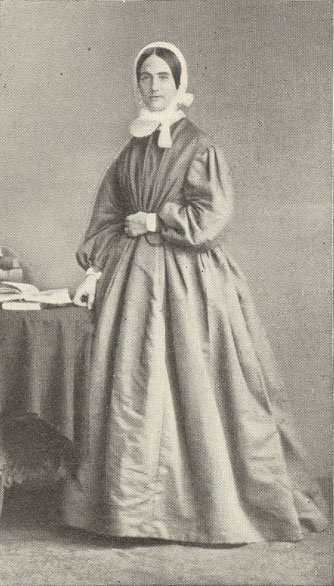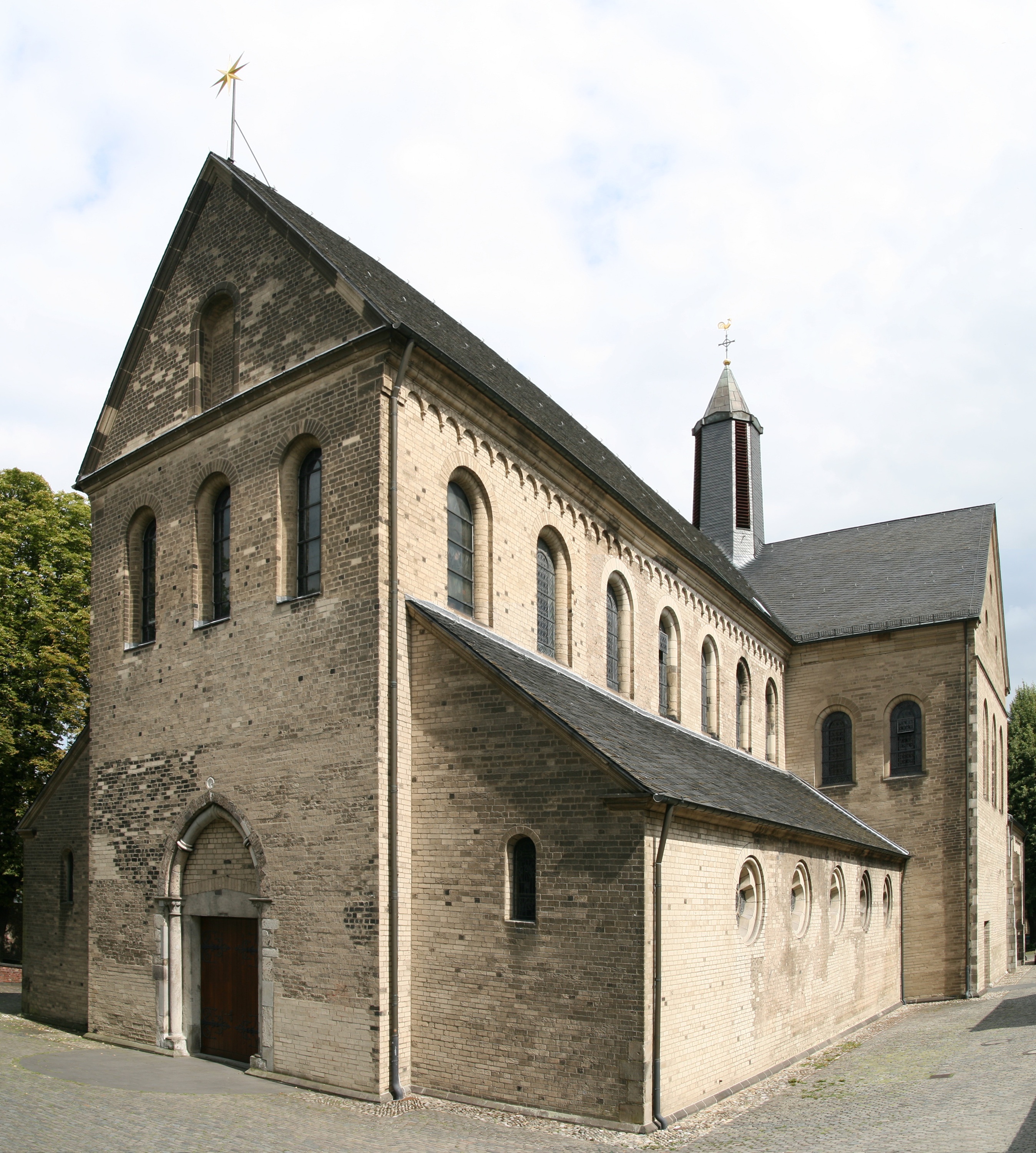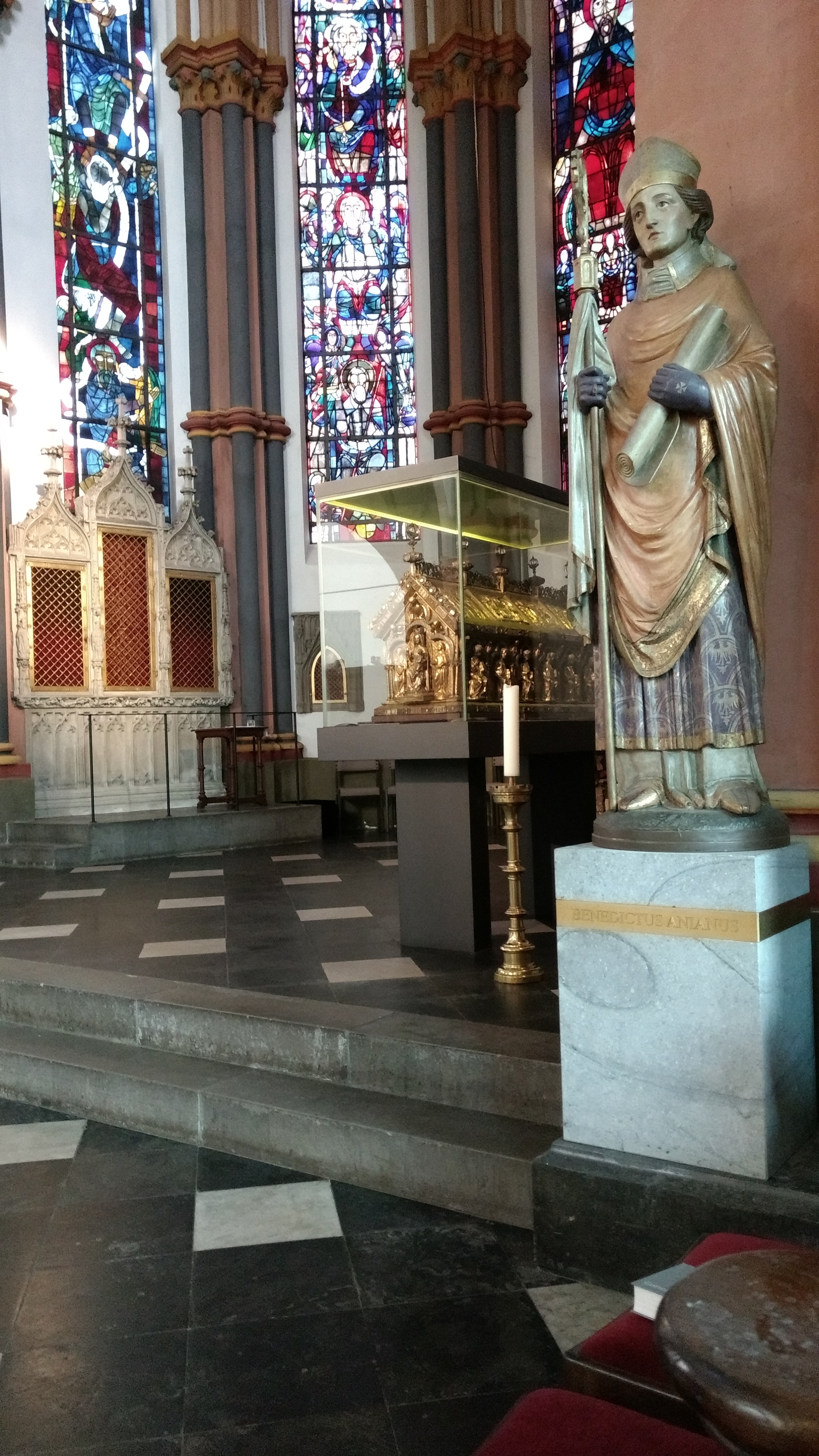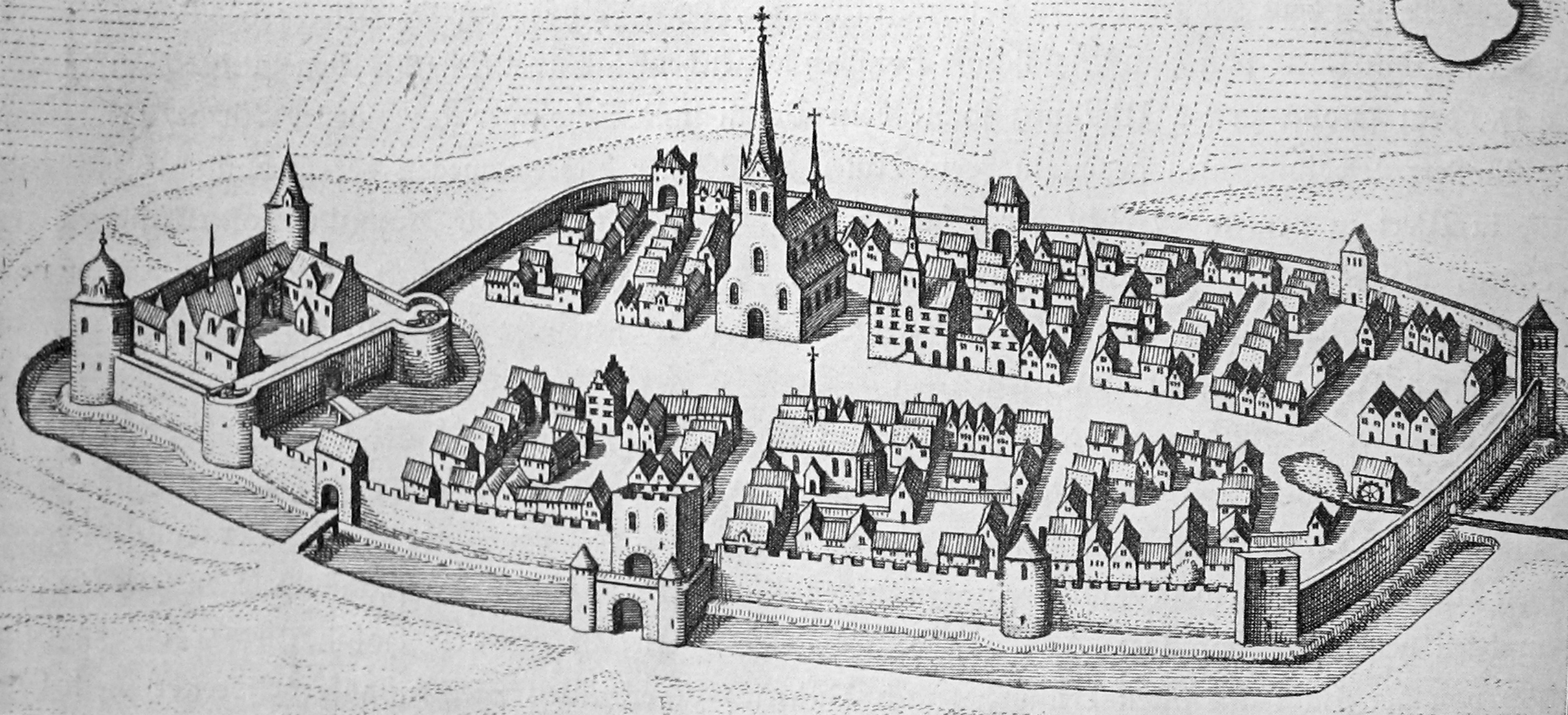|
Kaiserswerth
Kaiserswerth is one of the oldest quarters of the City of Düsseldorf, part of Borough 5. It is in the north of the city and next to the river Rhine. It houses the where Florence Nightingale worked. Kaiserswerth has an area of , and 7,923 inhabitants (2020). History About the year 700 the monk Saint Suitbert founded a Benedictine abbey at Werth, a river island that formed an important crossing point of the Rhine. The abbey was destroyed 88 years later. On that area there is now the "Erzbischöfliches Suitbertus- Gymnasium", an archiepiscopal secondary school with the old chapel and parts of the abbey. The former monastery garden is a meeting point for the upper school between lesson times. The Kaiserpfalz which is a general term for a temporary seat of the Holy Roman Emperor was built at an unknown date but before the year 1016. In 1062, the archbishop of Cologne, Anno II, kidnapped the underage German King Heinrich IV from here and in this way obtained the unofficial ... [...More Info...] [...Related Items...] OR: [Wikipedia] [Google] [Baidu] |
Deaconess
The ministry of a deaconess is a ministry for women in some Protestant, Oriental Orthodox, and Eastern Orthodox churches to provide pastoral care, especially for other women, and which may carry a liturgical role. The word comes from the Greek language, Greek (), for "deacon", which means a servant or helper and occurs frequently in the Christian New Testament of the Bible. Deaconesses trace their roots from the time of Jesus, Jesus Christ through to the 13th century in the West. They existed from the early through the middle Byzantine Empire, Byzantine periods in Constantinople and Jerusalem; the Clergy, office also existed in Western European churches. There is evidence to support the fact that the diaconate including women in the Byzantine Church of the early and middle Byzantine periods was recognized as one of the major non-ordained orders of clergy. The English separatists unsuccessfully sought to revive the office of deaconesses in the 1610s in their Amsterdam congregat ... [...More Info...] [...Related Items...] OR: [Wikipedia] [Google] [Baidu] |
Borough 5 (Düsseldorf)
Borough 5 () is a northern Boroughs of Düsseldorf, borough of Düsseldorf, the state capital of North Rhine-Westphalia, Germany. Düsseldorf's Düsseldorf Airport, International Airport is located in the borough. It is the largest borough by land area, but also the least populated. The borough covers an area of 50.75 square kilometres and (as of December 2020) has about 34,500 inhabitants. Stadtbezirk 5 borders with the Düsseldorf boroughs Borough 1 (Düsseldorf), 1 and Borough 6 (Düsseldorf), 6 to the South, and - via a shared border across the Rhine - Borough 4 (Düsseldorf), borough 4 to the South-West. To the West - also across the Rhine - it borders with Rhein-Kreis Neuss. Further it shares borders with the city of Duisburg to the North, and Kreis Mettmann to the East. Subdivisions Borough 5 is made up of six ''Stadtteile'' (city parts): Places of interest Arts, Culture and Entertainment * Kaiserswerth Imperial Palace, Düsseldorf-Kaiserswerth, Kaiserswerth * Me ... [...More Info...] [...Related Items...] OR: [Wikipedia] [Google] [Baidu] |
Düsseldorf
Düsseldorf is the capital city of North Rhine-Westphalia, the most populous state of Germany. It is the second-largest city in the state after Cologne and the List of cities in Germany with more than 100,000 inhabitants, seventh-largest city in Germany, with a 2022 population of 629,047. The Düssel, from which the city and the borough of Düsseltal take their name, divides into four separate branches within the city, each with its own mouth into the Rhine (Lower Rhine). Most of Düsseldorf lies on the right bank of the Rhine, and the city has grown together with Neuss, Ratingen, Meerbusch, Erkrath and Monheim am Rhein. Düsseldorf is the central city of the metropolitan region Rhine-Ruhr, the List of EU metropolitan regions by GDP#2021 ranking of top four German metropolitan regions, second biggest metropolitan region by GDP in the European Union, that stretches from Bonn via Cologne and Düsseldorf to the Ruhr (from Duisburg via Essen to Dortmund). The ''-dorf'' suffix mea ... [...More Info...] [...Related Items...] OR: [Wikipedia] [Google] [Baidu] |
Suitbert Of Kaiserwerdt
Saint Suitbert, Suidbert, Suitbertus, Swithbert, or Swidbert was born in Northumbria, England, in the seventh century, and accompanied Willibrord on the Anglo-Saxon mission. Life Suitbert was born in Northumbria. According to legend, his mother saw a star falling before he was born, which is why he is often depicted with a star. He studied in Ireland, at Rathmelsigi, Leinster, along with Ecgberht of Ripon. The latter, filled with zeal for the conversion of the Germans, had sent Wihtberht, to evangelize the Frisians, but owing to the opposition of the pagan ruler Redbad, King of the Frisians, Wihtberht was unsuccessful and returned to England. Ecgberht then sent Willibrord and his twelve companions, among whom was Suitbert.MacErlean, Andrew. "St. Suitbert." The Catholic Encyclopedia Vol. 14. New ... [...More Info...] [...Related Items...] OR: [Wikipedia] [Google] [Baidu] |
Düsseldorf Stadtteil Kaiserswerth
Düsseldorf is the capital city of North Rhine-Westphalia, the most populous state of Germany. It is the second-largest city in the state after Cologne and the seventh-largest city in Germany, with a 2022 population of 629,047. The Düssel, from which the city and the borough of Düsseltal take their name, divides into four separate branches within the city, each with its own mouth into the Rhine (Lower Rhine). Most of Düsseldorf lies on the right bank of the Rhine, and the city has grown together with Neuss, Ratingen, Meerbusch, Erkrath and Monheim am Rhein. Düsseldorf is the central city of the metropolitan region Rhine-Ruhr, the second biggest metropolitan region by GDP in the European Union, that stretches from Bonn via Cologne and Düsseldorf to the Ruhr (from Duisburg via Essen to Dortmund). The ''-dorf'' suffix means "village" in German (English cognate: ''thorp''); its use is unusual for a settlement as large as Düsseldorf. Linguistically, Düsseldorf is the larg ... [...More Info...] [...Related Items...] OR: [Wikipedia] [Google] [Baidu] |
Florence Nightingale
Florence Nightingale (; 12 May 1820 – 13 August 1910) was an English Reform movement, social reformer, statistician and the founder of modern nursing. Nightingale came to prominence while serving as a manager and trainer of nurses during the Crimean War, in which she organised care for wounded soldiers at Constantinople. She significantly reduced death rates by improving hygiene and living standards. Nightingale gave nursing a favourable reputation and became an icon of Victorian culture, especially in the persona of "The Lady with the Lamp" making rounds of wounded soldiers at night. Recent commentators have asserted that Nightingale's Crimean War achievements were exaggerated by the media at the time, but critics agree on the importance of her later work in professionalising nursing roles for women. In 1860, she laid the foundation of professional nursing with the establishment of Florence Nightingale Faculty of Nursing and Midwifery, her nursing school at St Thomas' Hospi ... [...More Info...] [...Related Items...] OR: [Wikipedia] [Google] [Baidu] |
War Of The Grand Alliance
The Nine Years' War was a European great power conflict from 1688 to 1697 between Kingdom of France, France and the Grand Alliance (League of Augsburg), Grand Alliance. Although largely concentrated in Europe, fighting spread to colonial possessions in the Americas, India, and West Africa. Related conflicts include the Williamite war in Ireland, and King William's War in North America. Louis XIV of France emerged from the Franco-Dutch War in 1678 as the most powerful monarch in Europe. Using a combination of aggression, annexation, and quasi-legal means, he then set about extending his gains to strengthen France's frontiers, culminating in the 1683 to 1684 War of the Reunions. The Truce of Ratisbon guaranteed these new borders for twenty years, but concerns among European Protestant states over French expansion and Edict of Fontainebleau, anti-Protestant policies led to the creation of the Grand Alliance, headed by William III of England, William of Orange. In September 1688 ... [...More Info...] [...Related Items...] OR: [Wikipedia] [Google] [Baidu] |
Henry IV, Holy Roman Emperor
Henry IV (; 11 November 1050 – 7 August 1106) was Holy Roman Emperor from 1084 to 1105, King of Germany from 1054 to 1105, King of Italy and List of kings of Burgundy, Burgundy from 1056 to 1105, and Duke of Bavaria from 1052 to 1054. He was the son of Henry III, Holy Roman Emperor—the second monarch of the Salian dynasty—and Agnes of Poitou. After his father's death on 5 October 1056, Henry was placed under his mother's guardianship. She made grants to German aristocrats to secure their support. Unlike her late husband, she could not control the election of the popes, thus the idea of the Libertas ecclesiae, "liberty of the Church" strengthened during her rule. Taking advantage of her weakness, Archbishop Anno II of Cologne kidnapped Henry in April 1062. He administered Germany until Henry came of age in 1065. Henry endeavoured to recover the royal estates that had been lost during his minority. He employed low-ranking officials to carry out his new policies, causing disco ... [...More Info...] [...Related Items...] OR: [Wikipedia] [Google] [Baidu] |
War Of The Spanish Succession
The War of the Spanish Succession was a European great power conflict fought between 1701 and 1714. The immediate cause was the death of the childless Charles II of Spain in November 1700, which led to a struggle for control of the Spanish Empire between supporters of the French House of Bourbon, Bourbons and the Austrian House of Habsburg, Habsburgs. Charles had named as his heir Philip V of Spain, Philip of Anjou, a grandson of Louis XIV of France, whose claim was backed by Kingdom of France, France and most of Habsburg Spain, Spain. His Habsburg rival, Charles VI, Holy Roman Emperor, Archduke Charles, was supported by the Grand Alliance (League of Augsburg), Grand Alliance, whose primary members included Habsburg monarchy, Austria, the Dutch Republic, and Kingdom of Great Britain, Great Britain. Significant related conflicts include the Great Northern War (1700–1721) and Queen Anne's War (1702–1713). Although by 1701 Spain was no longer the predominant European power, ... [...More Info...] [...Related Items...] OR: [Wikipedia] [Google] [Baidu] |
Kaiserpfalz
The term ''Kaiserpfalz'' (, "imperial palace") or ''Königspfalz'' (, "royal palace", from Middle High German ''phal ne'' to Old High German ''phalanza'' from Middle Latin ''palatia'' luralto Latin ''palatium'' "palace") refers to a number of palaces and castles across the Holy Roman Empire that served as temporary seats of power for the Holy Roman Emperor in the Early and High Middle Ages. The dukes and bishops of the empire also owned palaces, which were sometimes referred to as ''"pfalzen"'', especially since they were obliged to accommodate the emperor and his court when they were in transit, a duty referred to as ''Gastungspflicht'' (obligation to accommodate). Origin of the name ''Kaiserpfalz'' is a German word that is a combination of '' Kaiser'', meaning "emperor", which is derived from " caesar"; and ''Pfalz'', meaning "palace", and itself derived from the Latin ''palatium'', meaning the same (see palace). Likewise ''Königspfalz'' is a combination of ''König' ... [...More Info...] [...Related Items...] OR: [Wikipedia] [Google] [Baidu] |
Cologne War
The Cologne War (, ''Kölnischer Krieg'', '' Truchsessischer Krieg''; 1583–1588) was a conflict between Protestant and Catholic factions that devastated the Electorate of Cologne, a historical ecclesiastical principality of the Holy Roman Empire, within present-day North Rhine-Westphalia, in Germany. The war occurred within the context of the Protestant Reformation in Germany and the subsequent Counter-Reformation, and concurrently with the Dutch Revolt and the French Wars of Religion. Also called the Seneschal's War () or the Seneschal Upheaval () and occasionally the Sewer War, the conflict tested the principle of ecclesiastical reservation, which had been included in the religious Peace of Augsburg (1555). This principle excluded, or "reserved", the ecclesiastical territories of the Holy Roman Empire from the application of '' cuius regio, eius religio'', or "whose rule, his religion", as the primary means of determining the religion of a territory. It stipulated instead ... [...More Info...] [...Related Items...] OR: [Wikipedia] [Google] [Baidu] |
Anno II, Archbishop Of Cologne
Anno II ( – 4 December 1075) was Archbishop of Cologne from 1056 until his death. From 1063 to 1065 he acted as regent of the Holy Roman Empire for the minor Emperor Henry IV. Anno is venerated as a saint of the Catholic Church. Life He was born to the '' edelfrei'' Steusslingen family at Altsteußlingen (near Ehingen) in Swabia, and was educated in Bamberg, where he subsequently became head of the cathedral school. In 1046 he became chaplain to the Salian emperor Henry III, and accompanied him on his campaigns against King Andrew I of Hungary in 1051 and 1052. The emperor appointed him provost at the newly erected Cathedral of Goslar in 1054 and Archbishop of Cologne two years later. Due to his dominant position at the imperial court, Anno was able to influence other appointments. Anno's nephew, Burchard, was made Bishop of Halberstadt in 1059, and in 1063, his brother, Werner, became Archbishop of Magdeburg. According to contemporary sources, Anno led an ascetic lif ... [...More Info...] [...Related Items...] OR: [Wikipedia] [Google] [Baidu] |







